I wrote this article in Japanese and translated it into English using ChatGPT. I also used ChatGPT to create the English article title. I did my best to correct any translation mistakes, but please let me know if you find any errors. By the way, I did not use ChatGPT when writing the Japanese article. The entire article was written from scratch by me, Saikawa Goto.
Introduction
Movies and books covered in this article

Three takeaways from this article
- A societal change that “People believe that the desired information is correct”, as opposed to “people want correct information.”
- An era when half of the American people say that media information is a lie.
- What should the media be like in the future?
Self-introduction article


Published Kindle books(Free on Kindle Unlimited)
“The genius Einstein: An easy-to-understand book about interesting science advances that is not too simple based on his life and discoveries: Theory of Relativity, Cosmology and Quantum Theory”
“Why is “lack of imagination” called “communication skills”?: Japanese-specific”negative” communication”
The quotes in the article were translated using ChatGPT from Japanese books, and are not direct quotes from the foreign language original books, even if they exist.
How has Changed in the Basis for Judging Whether Information is True or Not?
A Woman in Her 20s Who does Not Know Ito Shiori

A while ago, I had a quite surprising experience. While talking to a woman friend in her mid-20s, I found out that she didn’t know who Ito Shiori was.
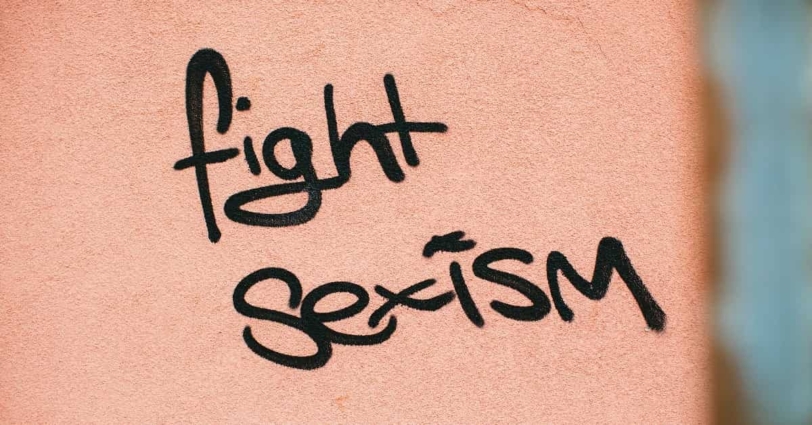

Ito Shiori is a woman who claimed to have been raped but protested that the man she identified as her attacker was not arrested, a claim that was widely reported in Japan and around the world. She is often referred to as a symbol of the #MeToo movement in Japan. I did not expect her to be unaware of the incident, as it should be of stronger interest to a young woman than to an uncle like me, furthermore the topic was big enough to reach outside of Japan.
Although she doesn’t watch the news and doesn’t have a TV, I assumed that she would have come across information about Ito Shiori on the internet or social media, given how big the story was. It was a shocking revelation for me to learn that she didn’t know about it.

And I was reminded once again of something I had often felt before. That is, “Unless we go get it ourselves, information doesn’t reach individual anymore.” There is too much information in the world. So we use various filtering functions to somehow manage the excess information. And as a result, “things that are not of interest” all spill over and fall from us.
I think it’s amazing how times have changed.

“People Want Correct Information” has been Replaced by “People Believe that the Desired Information is Correct” Era
I see the world today, as I wrote in the headline, as follows.
“People want correct information” has been replaced by “people believe that the desired information is correct” era.

Back in the day, I think the most sought-after aspect of “information” was its “objective correctness.” And, one criterion for determining that should have been the mass media.
There is a lot of information in the world. However, it is impossible to know which is correct. That’s why people relied on the mass media. The media researches, checks, and corroborates the information. And the information that was broadcast or printed through such a process must have been perceived as “correct.

I believe that the mass media are aware of their role and have fulfilled their mission as “watchmen of correctness” who keep an eye on politics and power. Although there was not as much information overflow as there is now, in a world where vast amounts of information are available, the relationship between “the media providing objectively correct information” and “citizens perceiving it as correct information” had a certain degree of validity.
However, times have changed significantly. Nowadays, the first thing demanded of “information” is whether it is “wanted” or not. I feel that the priority has shifted from “correct” to “wanted” when it comes to information.

I think this change is somewhat inevitable.
With the era where individuals can easily become people that broadcast their own opinions, whether through text, video, or photos, the amount of information in the world has increased significantly compared to the past. This means that even with just “correct information,” the amount is massive. If we were to sort information based on whether it’s “correct” or not, we wouldn’t be able to keep up. That’s why I feel that we’ve entered an era where people first select information based on whether they “want” it or not.

We wouldn’t necessarily have gave up on correctness. Of course, we are still seeking correct information. However, we can no longer cope with the order of “choosing wanted information from correct information.” Therefore, we have started to narrow down information quickly based on the criterion of “desired information.”
As a result of such behavior becoming commonplace, the feeling of “wanting” that was initially just a criterion for narrowing down information would be now mistakenly thought to guarantee correctness.
This is the birth of the stance that “people believe that the desired information is correct.”

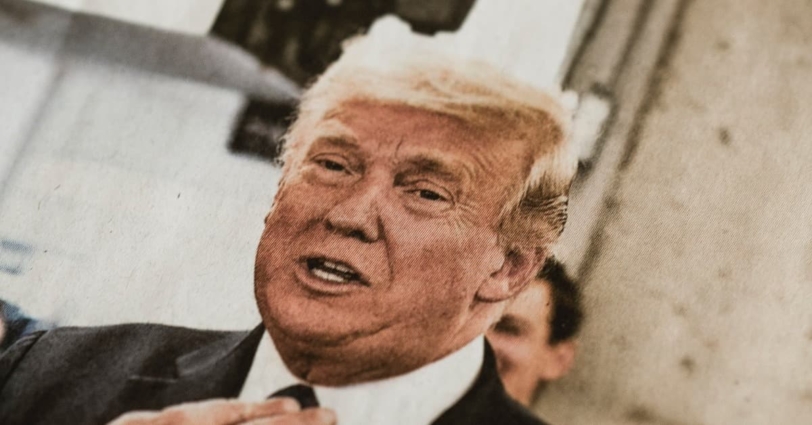
This book tells the story of a lawyer who fought against the influence of President Trump in an American newspaper company. To understand this battle, it is necessary to understand the significant change that “people believe that the desired information is correct” explained earlier.
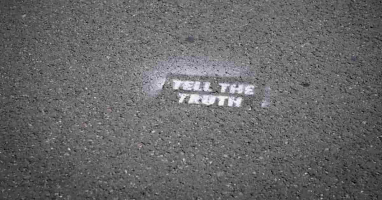
The Author had “Underestimated” President Trump
The author of this book is a person who worked as a lawyer in the news editing department of the New York Times for over 15 years. Generally, the legal department of a newspaper company is a department that “fears being sued and turns articles into bland and inoffensive content,” but the New York Times is completely different.

We, as the legal department, have long believed that we are here to assist in getting things on paper rather than shutting them down. We are fortunate to have a management team that supports us and journalists, understanding that taking risks is a necessary cost for excellent journalism. If our journalists do not push their own limits through their articles, we know that we are not doing our job as a newspaper company.

Because of this stance, the New York Times has taken an aggressive approach, publishing the tax returns that former President Trump had publicly promised to disclose but had not done so, reporting on the scandal that sparked the “#Me Too movement” and the dispute with the CIA over information disclosure, and suing over former President Trump’s tweets.
Now, the United States has a law called the “First Amendment to the United States Constitution” related to freedom of the press, which is a powerful weapon for newspapers. If done correctly, this law can be used as a shield to fight any opponent in a fair manner. While this article does not delve deeply into it, the book touches extensively on how the “First Amendment to the United States Constitution” has become a “weapon” for the media by tracing its history through various eras.

As a result, the author was optimistic when Trump was inaugurated as president. When someone saw Trump as a threat, the author replied, “I don’t think so,” but a few months later, the author had a lot of regrets.
Every time I read that email, I freeze. There is nothing more embarrassing in life than a failure that cannot be erased no matter how far back I go.

What did Former President Trump Change?
Why was the author underestimating former President Trump? It was partly due to the “weapon” of “law” mentioned earlier, but also because the author believed it was a matter of “correctness of information.” As long as the information was correct, the New York Times should never lose by using the law as a shield. No matter who the opponent is, that is unshakable. This is where the author’s basic belief lies.

However, it wasn’t long before the author came to understand that he had no choice but to fight on a completely different stage from “correctness of information.”
The fight over freedom of the press is not about the level of changing American law. It will be a battle about the nature of truth itself, about who can win the hearts and minds of the American people, who will have their voices heard and believed. Every day there will be a referendum on whether we as a nation still believe that freedom of the press is important and, inevitably, at the end of the day, whether we are still willing to defend our freedom of the press.

Do you understand the meaning? There is behind the change in the times “people believe that the desired information is correct.”
The author believed that if they delivered “correct information,” they would gain support. This would have worked in the past values. However, former President Trump presented a completely different world. It means that he clearly demonstrated that even with “incorrect information,” if they make people “want” that information, they win.

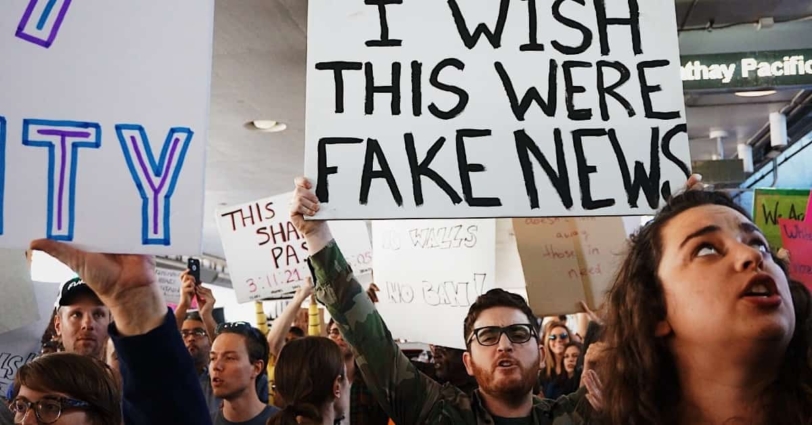
It became clear with the arrival of former President Trump that providing “desired information” is more likely to gain support than providing “correct information.” He labeled media information as “fake news” and spoke as if whatever the other party wants is true, even if it is nonsense. By this behavior, former President Trump demonstrated that he could gain certain support.
This is exactly what it means: People who provide “desired information” are more likely to be supported than those who provide “correct information.”

The remarkable rise of the Republican Party’s leader was based on a daily attack on the idea that facts are important. For those of us who believe that truth is the most important thing and have seen time and again how a single fact can end the political life of a lying politician, it was an unbelievable year that shook our convictions.
In a 2017 public opinion poll in America, a surprising result emerged. It was reported that 46% of all respondents believed that news organizations were making up “fake news” about the Trump administration. It is quite shocking that half of the country thinks that the media’s information is a “lie.”

The author has fought to protect “freedom of the press”. If it is “correct information”, they have always thought about what they can do to get it out to the world without giving in to power. However, if society has changed like this, the author laments that there is no point in protecting “freedom of the press”.
If they can’t trust the media, it doesn’t really matter how much freedom the media have in society. Untrusted media and media with their freedom taken away are pretty much the same.
That’s certainly true.

I can’t keep up with the changes in the world, and I don’t necessarily want to. I just want “correct information,” so I hope the media will do their best to provide it. However, if more and more people believe that “media information is a lie,” then the media’s significance will be lost.
I don’t think Japan still has experienced the kind of change that former President Trump showed in the US. Of course, there may be some people who try to spread false information, but I don’t think there is a situation where many people judge that “media information is fake news.”

However, the reality would be that the younger generation is not as exposed to information from the mass media as the younger generation is. This is probably a problem before correct/incorrect judgments are made.
In the future, information will continue to increase and we will likely enter an era where we are more limited to even accessing only “desired information”. In such a time, the importance of whether information is correct or not may no longer matter at all.

I don’t want to face such a scary era. Don’t we have to stop and think at some point?
Conclusion

This book tells various episodes about the author’s experience as a lawyer for the New York Times, not just in the fight against former President Trump. It’s full of interesting episodes.
However, I was also strongly drawn to the changing times regarding “information”, which overlaps with my own interests. After reading this book, I felt once again that I want to be a person who “wants correct information”.

Published Kindle books(Free on Kindle Unlimited)
“The genius Einstein: An easy-to-understand book about interesting science advances that is not too simple based on his life and discoveries: Theory of Relativity, Cosmology and Quantum Theory”
“Why is “lack of imagination” called “communication skills”?: Japanese-specific”negative” communication”

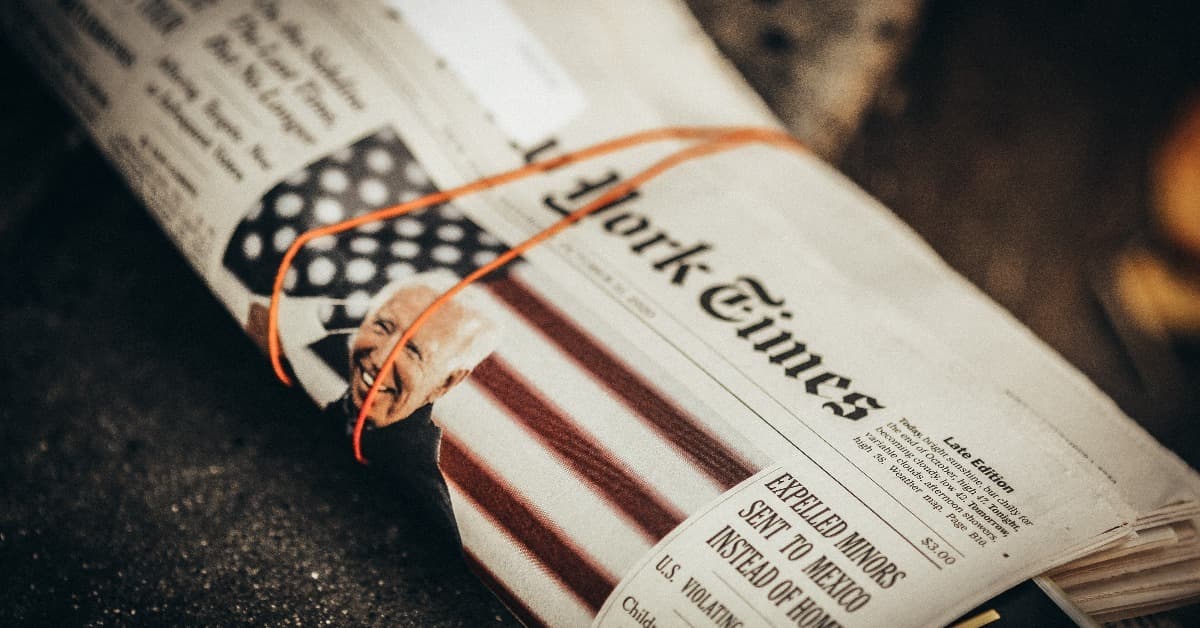





コメント